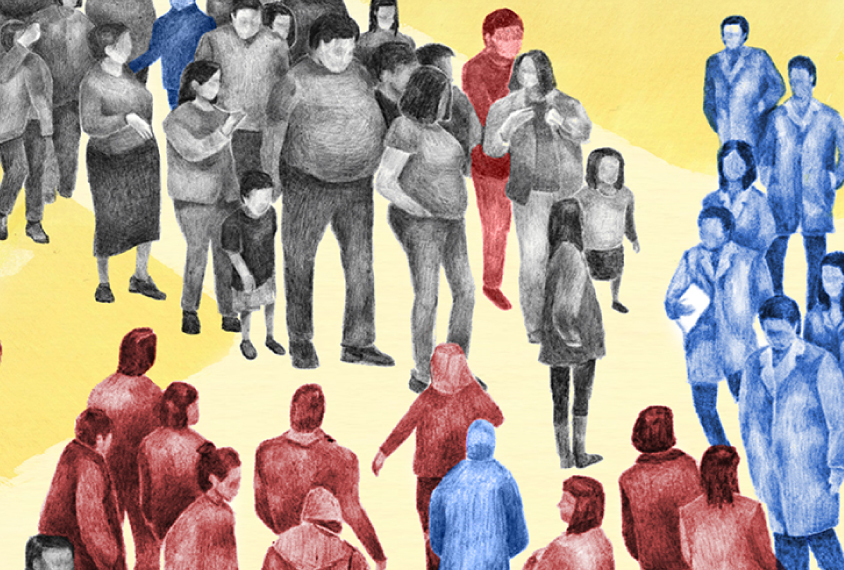Since the fall of 2020, our team at the University of California, Los Angeles — led by Alice Kuo — has established and maintained an interdisciplinary, multicenter research network, called the Autism Intervention Research Network on Physical Health (AIR-P), to promote the health of autistic people. In the context of these efforts, we hold a steadfast commitment to research that aligns with a neurodiversity paradigm: a framework that promotes inclusion and accessibility; increases self-determination and decision-making; and challenges the historically dominant deficit-oriented approach to autism research.
It is from this perspective that we read with interest the Spectrum article and the ensuing discourse among autistic and non-autistic people on social media about a power struggle between researchers, self-advocates and families.
From our vantage as autistic and non-autistic researchers, clinicians, caregivers and individuals with lived experience, we recognize a central thread running through all “sides” of the discussion. Autistic individuals are a highly marginalized group. Autistic people experience a higher risk of mortality and a 16-year shorter life expectancy relative to their non-autistic peers. They experience disproportionate rates of immune, metabolic, cardiovascular and neurological disorders, as well as anxiety, depression, functional somatic symptoms and other co-occurring physical and mental health conditions. Many of these negative health outcomes are due to highly preventable circumstances, including stigma and marginalization, lack of access to services and supports, and gaps in clinical practice that create systemic barriers to health and well-being.
As rightly called out in both the Spectrum article and the resulting conversation since its release, researchers can play a significant role in addressing these inequities. The Spectrum article highlights the central disconnect that impedes the effectiveness of research to address inequities for this population: the need to ensure authentic, meaningful collaborations with autistic people in all phases of the research process. This is essential not only from a research ethics perspective, but also to ensure that research is valid, desired by the population it seeks to serve, and designed with sustainability and impact in mind.

Although challenges remain within the field to conduct research in this manner, it is important to recognize and amplify leaders who have made important strides toward this model. Several autism researchers are known to regularly collaborate with autistic people in designing their research programs. Notable examples of those who develop and conduct studies that are inclusive and respectful of the needs of autistic people include: Christina Nicolaidis and AASPIRE, Elizabeth Pellicano, Damian Milton, Sandy Thompson-Hodgetts and Sue Fletcher-Watson. Similarly, the Autistic Self Advocacy Network and Autistic Doctors International — organizations led by autistic people — are pioneering efforts in this area.
M
oving forward, we call on others to advance these efforts. It will be particularly important to conduct action-oriented research that can generate expedient and practical recommendations geared toward individual- and population-level health-promotion efforts. All researchers have an opportunity to engage their colleagues in spurring more participatory, inclusive and accessible approaches, including in the field of genetics, to continue growing its alignment with principles of neurodiversity.Most recently, we in AIR-P are engaging in cross-neurotype brainstorming to mentor early-career autistic investigators, to ensure research within the network reflects the priorities and experiences of individuals with lived experience, and to design research that is accessible, inclusive and neurodiversity-oriented.
Despite advances in our own work and across the field, significant work remains to correct the power imbalance between autistic people and non-autistic researchers. We call on our autistic and non-autistic colleagues to promote equity in their research and work collaboratively toward innovations that can address the complex health challenges for autistic people across the life course.





